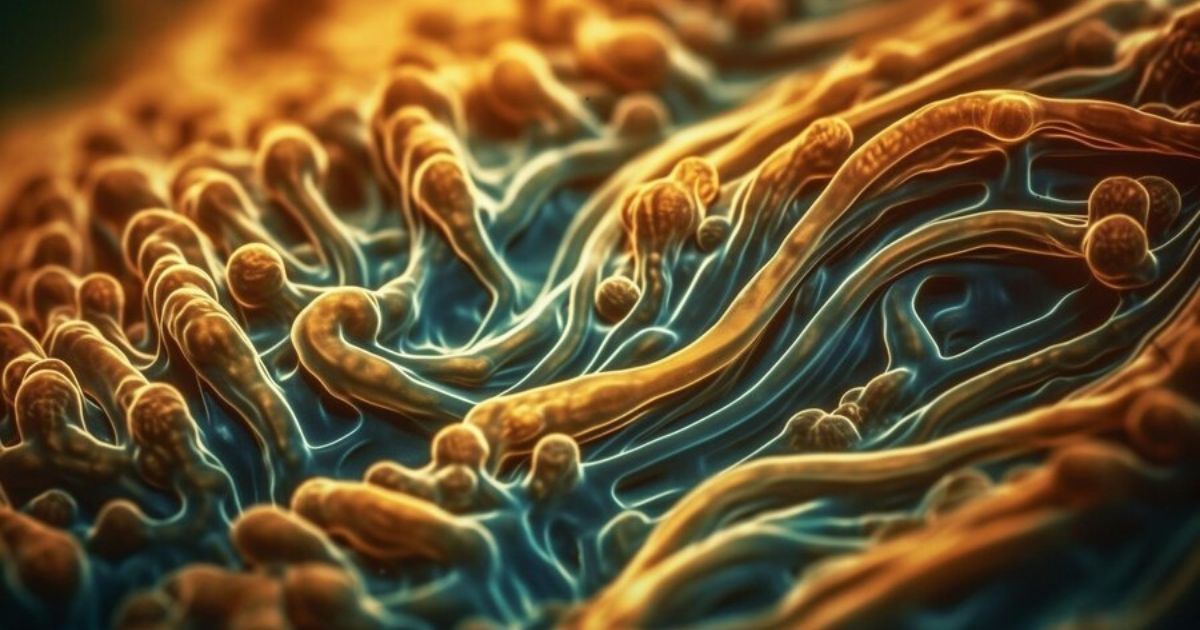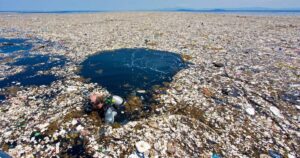In a world where food waste has reached alarming levels, it is crucial to understand the potential health risks associated with consuming trash bad for humans? Imagine a scenario where a single bite of spoiled food can unleash a cascade of bacterial contamination, chemical exposure, and hidden pathogens. This article aims to shed light on the dangers of eating trash, providing informative insights and practical tips to ensure your well-being. Join us as we explore the hidden perils lurking within discarded food and discover how to navigate this unconventional culinary landscape.
Key Takeaways
- Consuming trash, such as expired or spoiled food, can lead to food poisoning and its associated symptoms like nausea, vomiting, diarrhea, and abdominal pain.
- Bacterial contamination in spoiled food, specifically from bacteria like Salmonella and E. coli, can cause foodborne illnesses and severe complications such as dehydration and organ damage.
- Moldy food can produce mycotoxins, leading to allergic reactions and respiratory problems.
- Exposure to chemicals in trash can pose significant health risks, making proper waste disposal and avoiding scavenging in hazardous areas important to minimize the risk of contamination.
Understanding the Risks of Eating Trash
The risks associated with consuming garbage are important to comprehend. One common risk is associated with dumpster diving, which involves scavenging through trash bins for discarded food. While it may seem like a way to save money or reduce waste, there are significant health consequences of eating expired food. Consuming expired or spoiled food can lead to food poisoning, which can cause symptoms such as nausea, vomiting, diarrhea, and abdominal pain.
In some cases, it can even lead to more severe complications such as dehydration, organ damage, or even death. Additionally, consuming contaminated or spoiled food increases the risk of contracting illnesses caused by bacteria, viruses, or parasites. It is crucial to understand these risks before considering consuming trash to avoid the common dangers associated with consuming spoiled food.
Common Dangers in Consuming Spoiled Food
Consuming spoiled food poses significant hazards, including the risk of falling ill from ingesting harmful bacteria or toxins. When food spoils, it becomes a breeding ground for various types of bacteria, such as Salmonella and E. coli, which can cause food poisoning. These bacteria release toxins that can lead to symptoms like nausea, vomiting, diarrhea, and abdominal pain. Additionally, spoiled food may contain hidden dangers that are not immediately apparent. For example, moldy food can produce mycotoxins, which can cause allergic reactions and respiratory problems. Unconventional eating habits, such as consuming expired or rotten food, further increase the risk of ingesting harmful substances. It is important to exercise caution and adhere to proper food handling and storage practices to prevent these potential dangers.
Bacterial Contamination and Foodborne Illnesses
Bacterial contamination is a significant concern when it comes to consuming spoiled food, as it can lead to foodborne illnesses. Common bacteria that can cause such illnesses include Salmonella, E. coli, and Listeria. To prevent foodborne illnesses, it is crucial to practice proper food handling and storage techniques, including thorough cooking, refrigeration, and avoiding cross-contamination.
Risk of Contamination
- Numerous foodborne illnesses can result from the consumption of contaminated food waste. Bacterial contamination is one of the primary causes of foodborne illnesses, and consuming spoiled or rotten food increases the risk of infection. Understanding food poisoning and proper handling of spoiled food is crucial to prevent these illnesses.
To illustrate the risks associated with contaminated food waste, the following table provides a visual representation:
| Common Foodborne Bacteria | Symptoms |
|---|---|
| Salmonella | Diarrhea, fever, abdominal pain |
| E. coli | Diarrhea, abdominal cramps, vomiting |
| Campylobacter | Diarrhea, fever, abdominal pain |
| Listeria | Fever, muscle aches, nausea |
| Norovirus | Diarrhea, vomiting, stomach pain |
It is essential to exercise caution when handling and consuming food waste to avoid these foodborne illnesses. Always ensure proper hygiene, store perishable foods correctly, and promptly discard any spoiled or expired products. By taking these precautions, you can significantly reduce the risk of contamination and protect your health.
Common Foodborne Bacteria
What are the common foodborne bacteria that can lead to bacterial contamination and foodborne illnesses? Understanding food poisoning and its common symptoms is crucial for maintaining food safety. Here are some of the most common foodborne bacteria that can cause illness:
- Salmonella: This bacteria is commonly found in raw or undercooked poultry, eggs, and unpasteurized milk. Symptoms of Salmonella infection include diarrhea, fever, and abdominal cramps.
- E. coli: Certain strains of E. coli can cause severe foodborne illness. Contaminated ground beef, raw vegetables, and unpasteurized dairy products are common sources. Symptoms may include bloody diarrhea, vomiting, and stomach cramps.
- Listeria: This bacteria can be found in ready-to-eat foods like deli meats, soft cheeses, and raw sprouts. Symptoms of Listeria infection may include fever, muscle aches, and gastrointestinal issues.
Preventing Foodborne Illnesses
To prevent foodborne illnesses caused by bacterial contamination, it is important to take necessary precautions and adhere to proper food safety practices. One of the key measures to prevent bacterial contamination is to maintain proper hygiene and prevent cross-contamination. This involves washing hands thoroughly before handling food, using separate cutting boards for raw meat and other food items, and ensuring that utensils and surfaces are properly cleaned and sanitized.
Additionally, it is crucial to cook food at safe temperatures to kill any harmful bacteria present. Using a food thermometer to ensure that meat, poultry, and seafood reach their recommended internal temperatures can greatly reduce the risk of foodborne illnesses. By following these practices, individuals can significantly reduce the chances of contracting bacterial infections from contaminated food.
Health Effects of Chemicals in Trash
Exposure to chemicals in trash can pose significant health risks. Many common household products contain toxic substances that can be harmful if ingested or inhaled. Therefore, it is important to handle and dispose of trash properly to minimize the potential health hazards associated with chemical exposure.
Chemical Exposure Risks
Consuming trash poses potential health risks due to the exposure to harmful chemicals present in the discarded materials. The health consequences of consuming toxic substances can be severe, making it crucial to take steps to prevent chemical exposure. Here are some key points to consider:
- Chemical exposure prevention:
- Proper waste disposal: Dispose of trash in designated areas to minimize the risk of chemical leakage or contamination.
- Avoid scavenging in hazardous areas: Stay away from sites that may contain harmful chemicals, such as industrial sites or landfills.
- Wear protective gear: If handling or sorting trash is necessary, use gloves, masks, and other protective equipment to reduce direct contact with potentially dangerous substances.
Trash-Related Health Hazards
The presence of harmful chemicals in trash can have detrimental effects on human health, necessitating a closer examination of the potential health hazards associated with consuming discarded materials. Understanding garbage composition is crucial in assessing the health risks of scavenging. Trash can contain a variety of chemical substances, including pesticides, cleaning agents, and heavy metals, which can contaminate food and water sources. These chemicals have the potential to disrupt the normal functioning of the human body, leading to various health issues such as respiratory problems, organ damage, and even cancer.
Additionally, exposure to these chemicals can have long-term effects on human health, impacting not only individuals who scavenge through trash but also those who live in close proximity to landfill sites. It is important to raise awareness about these health risks and advocate for proper waste management practices to minimize the potential harm caused by the chemicals present in trash.
Safe Waste Disposal
Safe waste disposal is crucial in minimizing the potential health effects of chemicals present in trash. Proper waste management practices help to protect both human health and the environment. Here are some key points to consider when it comes to safe waste disposal:
- Sorting and separating waste: By separating different types of waste, such as recyclables, organic waste, and hazardous materials, we can reduce the risk of harmful chemicals contaminating the environment.
- Recycling and reusing: Recycling waste materials not only conserves natural resources but also reduces the need for new production, which can be environmentally damaging. Reusing items instead of disposing of them also helps minimize waste.
- Proper disposal methods: It is essential to dispose of waste in designated containers or facilities that are designed to handle different types of waste safely. This includes hazardous waste disposal facilities for items like batteries, chemicals, and pharmaceuticals.
Implementing safe waste management practices is crucial for protecting our health and minimizing the environmental impact of chemicals present in trash.
Parasites and Pathogens: Hidden Threats in Trash
Trash can harbor a multitude of parasites and pathogens, posing a hidden threat to one’s health. When we dispose of waste, we often overlook the potential dangers lurking within. Parasites are organisms that live on or inside another organism, causing harm. Pathogens, on the other hand, are microorganisms that can cause disease. To shed light on the hidden dangers, let’s take a closer look at some common parasites and pathogens that can be found in trash:
| Parasite/Pathogen | Potential Health Risks |
|---|---|
| Salmonella | Food poisoning |
| E. coli | Gastrointestinal issues |
| Toxoplasma gondii | Flu-like symptoms |
To avoid falling victim to these hidden threats, it is essential to practice proper waste disposal and maintain good hygiene. By taking steps such as washing hands thoroughly after handling trash and keeping garbage containers sealed, we can minimize the risk of parasite transmission and prevent potential health issues.
Tips for Avoiding Illness When Eating Unconventional Foods
To ensure your well-being when consuming unconventional foods, it is crucial to implement certain precautions and practices that build upon the previous discussion on parasites and pathogens found in trash. Here are some tips for avoiding illness when eating unconventional foods:
- Educate Yourself: Before trying unconventional food recipes or foraging for wild edibles, thoroughly research and learn about the plants and animals you plan to consume. Understand their potential risks and how to properly handle and prepare them.
- Seek Expert Guidance: Consult experienced foragers or chefs who have expertise in preparing unconventional foods. They can provide valuable insights on safe handling methods and offer advice on identifying edible species.
- Practice Proper Hygiene: Wash your hands thoroughly before and after handling unconventional foods. Use clean utensils and cutting boards to prevent cross-contamination.
Importance of Proper Food Handling and Storage
Proper food handling and storage practices are essential in ensuring the safety of your meals. By following proper food storage and safe food handling techniques, you can minimize the risk of foodborne illnesses and maintain the quality of your food. When it comes to proper food storage, it is important to keep perishable items refrigerated at the appropriate temperatures to prevent the growth of harmful bacteria.
Additionally, practicing safe food handling includes washing your hands thoroughly before and after handling food, using separate cutting boards for raw and cooked foods, and cooking foods to the recommended internal temperatures. By adhering to these practices, you can protect yourself and your loved ones from the potential hazards associated with improper food handling and storage.
FAQ,s
Can Eating Trash Make You Immune to Foodborne Illnesses?
Eating trash does not confer immunity to foodborne illnesses. While the immune response and microbiome interactions play a role in protecting against pathogens, consuming trash can introduce harmful bacteria and toxins, increasing the risk of getting sick.
Are There Any Health Benefits to Eating Spoiled Food?
While there may be a temptation to explore potential health benefits of consuming spoiled food, it is important to note that doing so can pose significant health risks due to potential bacterial contamination and lack of nutritional value.
Can Consuming Chemicals Found in Trash Lead to Long-Term Health Problems?
Chemical contamination risks associated with consuming chemicals found in trash can pose potential long-term health effects. Exposure to hazardous substances may lead to various health problems, highlighting the importance of proper waste management and avoiding consumption of trash.
Are There Any Parasites or Pathogens That Can Survive in Trash and Cause Serious Illnesses?
Parasites and pathogens can thrive in trash, potentially leading to serious illnesses. These microorganisms can pose significant health risks when ingested, making it crucial to avoid consuming food or substances from trash.
Can Following Proper Food Handling and Storage Techniques Completely Eliminate the Risk of Getting Sick From Eating Trash?
Following proper food safety guidelines, such as practicing good hygiene, storing food at correct temperatures, and using proper waste disposal methods, can significantly reduce the risk of getting sick from eating trash.
Conclusion
In conclusion, consuming trash can pose significant health risks due to bacterial contamination, chemical exposure, and the presence of parasites and pathogens. It is crucial to prioritize proper food handling and storage to avoid foodborne illnesses. By understanding the dangers associated with eating spoiled food, individuals can make informed choices to protect their health. Remember, when it comes to unconventional foods, caution and knowledge are essential for maintaining well-being.










